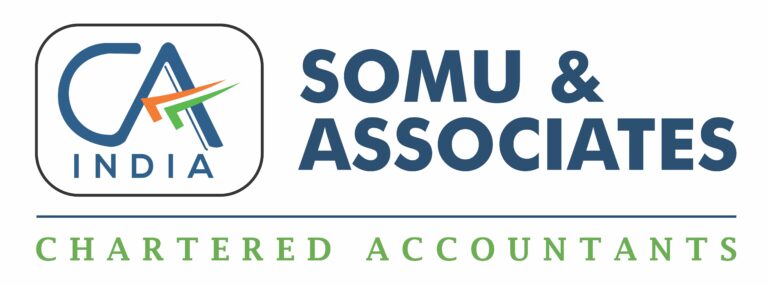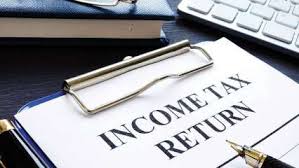FAQs on New Tax Regime Vs Existing Tax Regime
New Tax Regime
Budget 2020 introduced the new tax regime where the Individual and HUF has to declare the choice at the time of filing of the income tax return from FY 2020-21
The New Tax regime has lower tax rates in comparison to the existing Tax regime. However, the New Tax Regime removes most tax deductions and exemptions. It is optional.
Section 115BAC: Income Tax Slabs under the New Tax Regime for all Individuals/HUF for FY 2022-23 (AY 2023-24)
The below tax rates are also applicable even to senior citizen and super senior citizen. Individual/HUF may be resident or non-resident. Individual may be salaried/retired employee (having salaried income) or a self-employed person (having business income) or any other person (having any other income).
Income Tax Slab Income Tax Rate
Upto Rs.2,50,000 NIL
> Rs.2,50,000 Upto Rs.5,00,000 0.05
> Rs.5,00,000 Upto Rs.7,50,000 0.10
> Rs.7,50,000 Upto Rs.10,00,000 0.15
> Rs.10,00,000 Upto Rs.12,50,000 0.20
> Rs.12,50,000 Upto Rs.15,00,000 0.25
Above Rs.15,00,000 0.30
Note: However, rebate U/s 87A is available. Click here to know more
Whether Employees can choose option at the beginning of financial year?
Yes, The Income Tax Department clarification enables employees to intimate their choice to the employer at the beginning of the Financial Year. Once declared, the employer is bound to calculate and deduct tax as per option provided by employee.
However, if an employee does not intimate a choice of the tax regime, the employer can continue to follow the existing regime and deduct tax (TDS) accordingly.
Whether option can be changed at the time of filing of IT Returns?
Yes, irrespective of the declaration to Employer, an employee has an option to change at the time of filing of their Income Tax Returns. However, as a result of this you may be liable to Pay Tax or Entitled for Refund
Important Note:
1. Individuals/HUF are having salaried income and no business/profession income: Has the option to choose between the old and new tax regimes every year i.e. he/she can switch regimes from year to year. This means that a salaried individual will have to file Form 10-IE for every year for which
he wants to choose the new tax regime.
2. Individuals/HUF are having business income: Once the Individual/HUF has exercised the option of new tax regime, it remains valid for subsequent years also. However, once exercised for new tax regime option cannot be withdrawn (except in cases he/she ceases to have business/profession income)
Compliance Requirement for Section 115BAC
CBDT vide Notification 82/2020 dated 01 October, 2020 has inserted Form No. 10-IE as a mandatory compliance before opting for new tax regime under Section 115BAC
The Income Tax Department has notified that the option to opt for the new tax regime will be available for the taxpayers filing return of income in ITR-1 or ITR-2 in the return itself. Form 10-1E should be filed mandatorily by the Assesses who are filing return in ITR-3 or ITR-4 only (i.e with business Income), in addition to opting for the new taxation regime in the ITR.
List of exemptions/deductions and their applicability in both tax regimes.
Deduction Type Existing Tax Regime New Tax Regime
Standard Deduction of Rs. 50000 Yes No
Professional Tax deducted from Salary Yes No
Exemptions under Section 10 & 17 Existing Tax Regime New Tax Regime
House Rent Allowance Yes No
Gratuity Yes Yes
Leave Encashment Yes Yes
Children Education Allowance Yes No
Leave Travel Allowance Yes No
Uniform Allowance Yes No
Housing/Other Income Existing Tax Regime New Tax Regime
Other Income (Bank Interest, NSC Interest etc.) Yes Yes
Interest on Housing Loan – Self Occupied Yes No
Income from House Property Income – Let Out Yes Yes
Loss from House Property Income – Let Out Yes No
Interest on Housing Loan – Additional Exemption (80EE & 80EEA) Yes No
Chapter VI-A Existing Tax Regime New Tax Regime
Medical Insurance Premium (Sec 80D) Yes No
Deduction towards Handicapped Dependents (Sec 80DD) Yes No
Deduction towards treatment of Specified Diseases (Sec 80DDB) Yes No
Interest Paid on Higher Education Loan (Sec 80E) Yes No
Deduction for Permanent Disability (Sec 80U) Yes No
Employer’s contribution toward NPS (up to 10%)(u/s 80CCD) Yes Yes
Interest on deposits in Saving bank accounts (80TTA) Yes No
Deduction in respect of Interest income (80TTB) for Senior Citizen Yes No
Exemption on Loan for Purchase of Electric Vehicles (80EEB) Yes No
Deductions Under 80C Existing Tax Regime New Tax Regime
Employees Provident Fund Yes No
Voluntary Provident Fund Yes No
Public Provident Fund Yes No
Children’s Education – Tuition Fees Yes No
National Savings Certificate (NSC) Yes No
Life Insurance Premium Yes No
Housing Loan Principal Repayment Yes No
Sukanya Samriddhi Scheme Yes No
Accrued NSC Interest Yes No
Mutual Funds / ULIP Yes No
Deduction under Life Insurance Pension Scheme Yes No
Employees contribution towards NPS Yes No
Senior Citizens Savings Scheme Yes No
Tax Saver Fixed Deposits / Term Deposits / Senior Citizen Saving Scheme Yes No
Investment in Infrastructure /tax saving bonds Yes No
Flexi Benefits Tax Free
Pay Components Existing Tax Regime New Tax Regime
Leave Travel Allowance Yes No
Children Education / Hostel Allowance Yes No
Professional Developement/ Research Allowance Yes No
Gift Vouchers (up to 5000) Yes Yes
Internet & Telephone Reimbursement Yes Yes
Fuel Reimbursement Yes Yes
Driver Salary Yes Yes
Car Maintenance / Insurance Yes Yes
Free Meal/Food Coupon Yes No
Section 115BAD: New Tax Rate for Co-operative Society
As per this section, the Co-operative Society have an option to opt for new tax regime under which tax at the rate 0f 22% can be charged in the place of existing tax rate of 30% but subject to sacrificing the following allowances or deductions:
1) Deduction u/s 10AA or 32(1)(iia) or 33AB or 33ABA or 35AD
2) Deduction for Investment allowance u/s 32AD
3) Chapter VI-A deduction (80C,80D, 80E and so on) (Except 80JJAA)
4) Exemption or deduction for any other perquisites or allowances
5) Without setting off any loss carried forward or unabsorbed depreciation of earlier year
6) No Additional Depreciation u/s 32(2) allowed
Compliance Requirement for Section 115BAD
CBDT vide Notification 82/2020 dated 01 October, 2020 has inserted Form No. 10-IF as a mandatory compliance before opting for new tax regime under Section 115BAD


